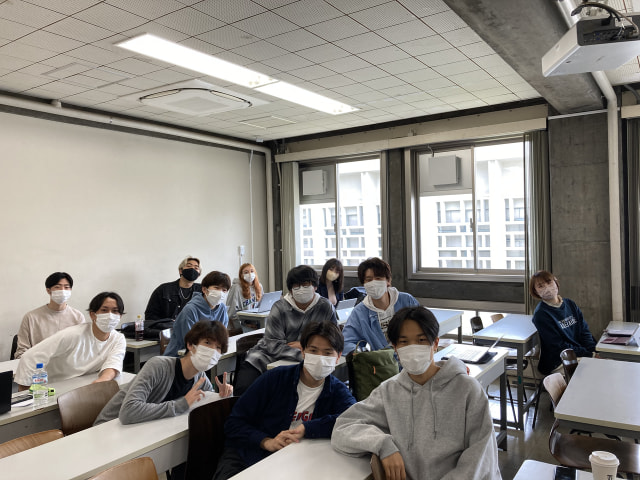比較教育/Comparative Education 2022
- 日本の教育への批判的意見を持ったメンバーが多く集まったような印象があります。さて、日本の教育を比較の視点から学んだとき、どのような結論に至るのでしょうか。楽しみです。
- It seems that we have a good number of members with critical opinions about Japanese education. What might these opinions be after studying from comparative perspectives? Looking forward to seeing their academic journeys.

メンバー / Member
- 大倉 諒馬 / Ryoma Okura
- 白石 祥之 / Yoshiyuki Shiraishi
- 齊藤 香音 / Kanon Saito
- 長久保 侑平 / Yuhei Nagakubo
- 勝又 友樹也 /Yukiya Katsumata
- 降旗 翔星 / Shosei Furihata
- 屋宜 盛一郎 / Seiichiro Yagi
- 中川 智史 / Satoshi Nakagawa
- 本間 友菜 / Yuna Homma
- 赤坂 元嗣 / Mototsugu Akasaka
- 葛西 賢介 / Kensuke Kasai
プロジェクト / Research Projects
- Financial Education in Japan
-
Social Needs for Education Systems in Japan and the U.S.
-
After-School Education in Japan
-
Academic Debates in Japanese Education - how can we promote it? -
-
Pandemic, Culture, and Education
-
The “Haya-Umare” Influence
-
English Ability in Different Countries
メンバーの声 / Member’s Voice
Though I have a strong interest on education since I was a junior high, it was the first time for me to examine the strength of Japanese education. From that perspective, the book we read was quite suggestive and it strongly affected my final project. I really appreciate to have got valuable experience to focus on the great point of Japan, comparing the U.S.
I learned from Ms.Hayashi for two semesters. She really listens to students' voices and supports catching up with the class. Also, she has enough knowledge of education all over the world and sometimes invited foreign students to the class, so every class was exciting! Thank you very much!
Before the class started, my interest in education was not so high, but now that I have finished taking this class, I am very interested in it. Two points are particularly impressive. The first was to watch a video of kindergartens in the US, China and Japan and exchange opinions with classmates. The second point is that we invited guests and exchanged various opinions. There were many things I noticed from the guest's story, such as why Japanese people can't speak English despite Japanese well-educated education, and the committee activities and club activities of elementary schools seem to be characteristic. If I pass the lottery, I would like to take Ms. Hayashi's class in the fall semester as well. Thank you for a very enjoyable spring semester.
It was my first time to learn about education as a system. Comparing with other countries and observing our system from an objective view was another fresh theme for me. My doubt I had before the class against the Japanese education system was resolved at the end, making me feel lucky I was able to grow up here. Thank you for teaching us these facts and helping us like our home country more.
Before taking the class, I subconsciously thought that Japanese education was bad. However, through talking with my classmates and comparing with education in other countries, I was able to realize the characteristics and good points of Japanese education. I will take Hayashi-sensei's class again in the fall semester if it is available. Thank you so much.